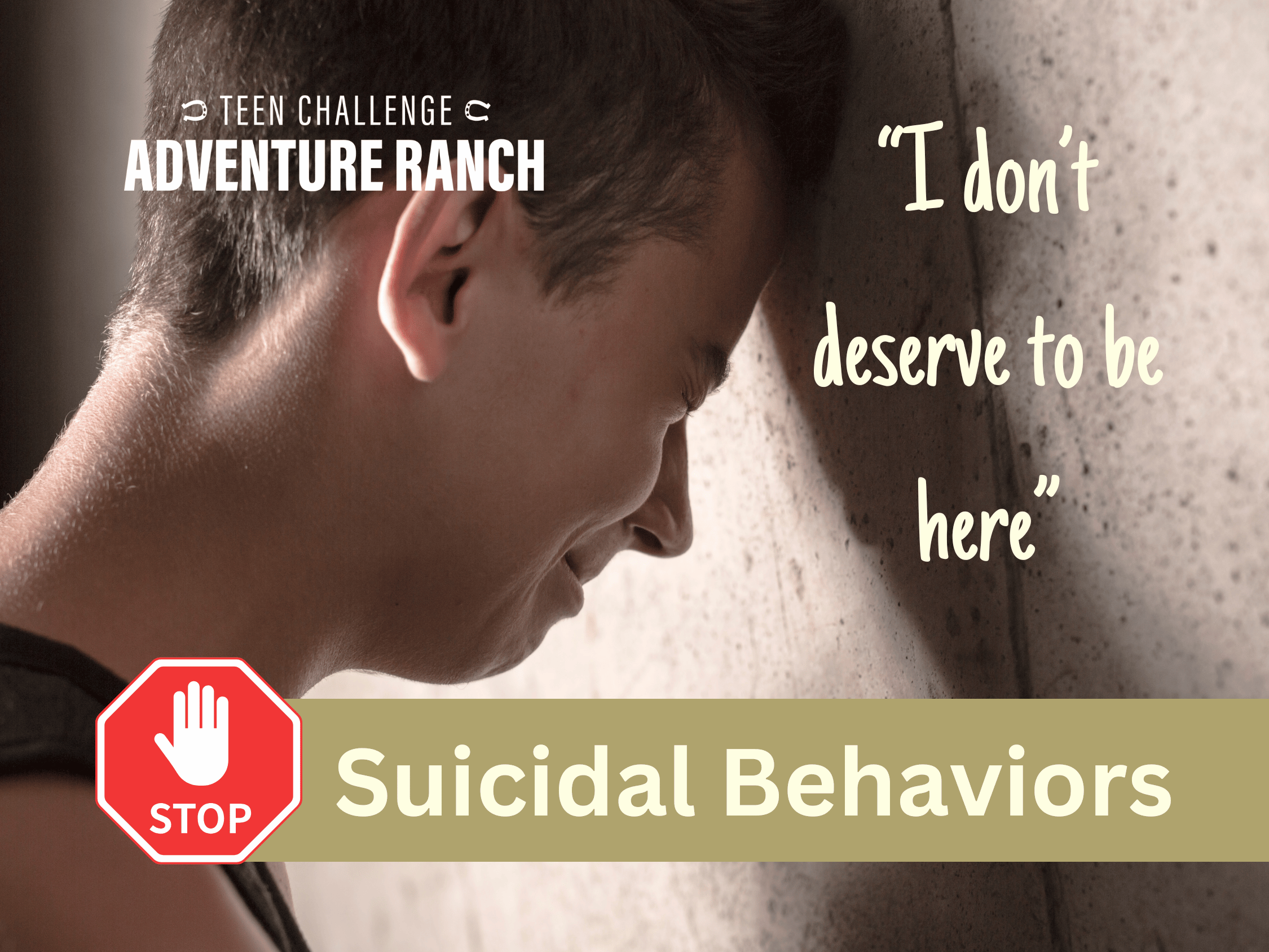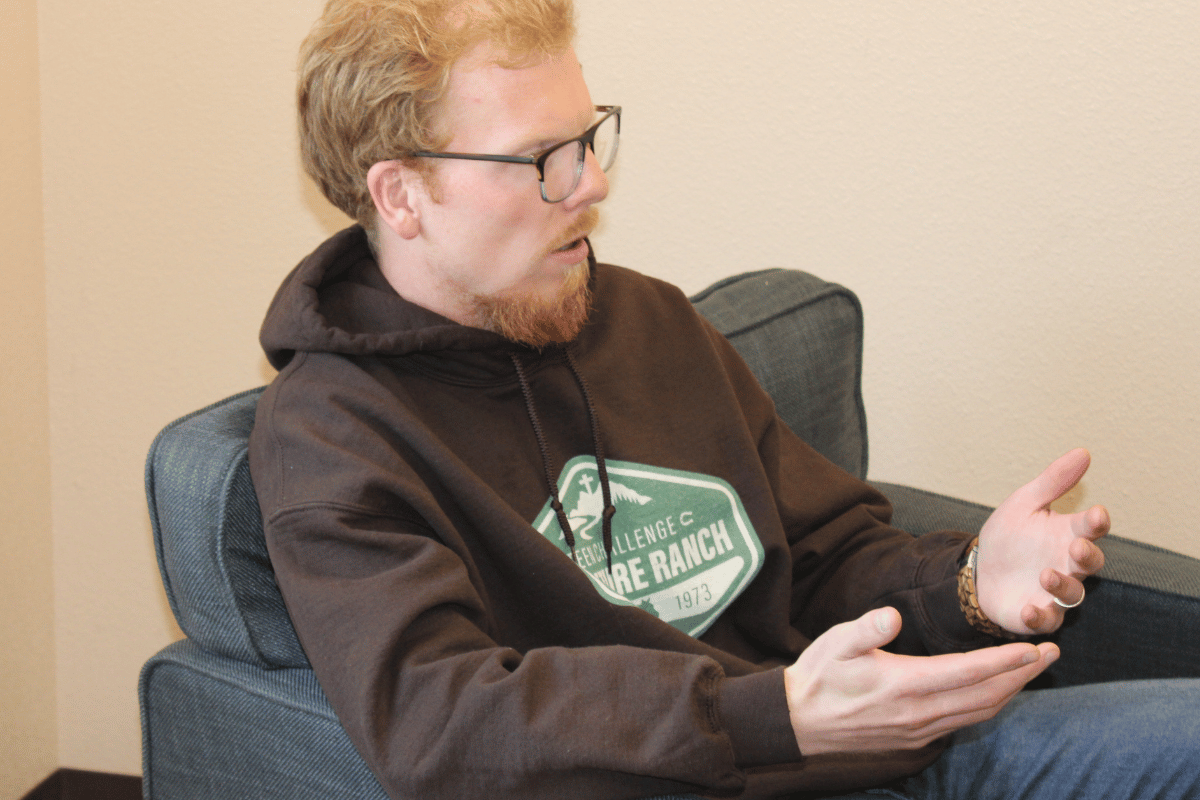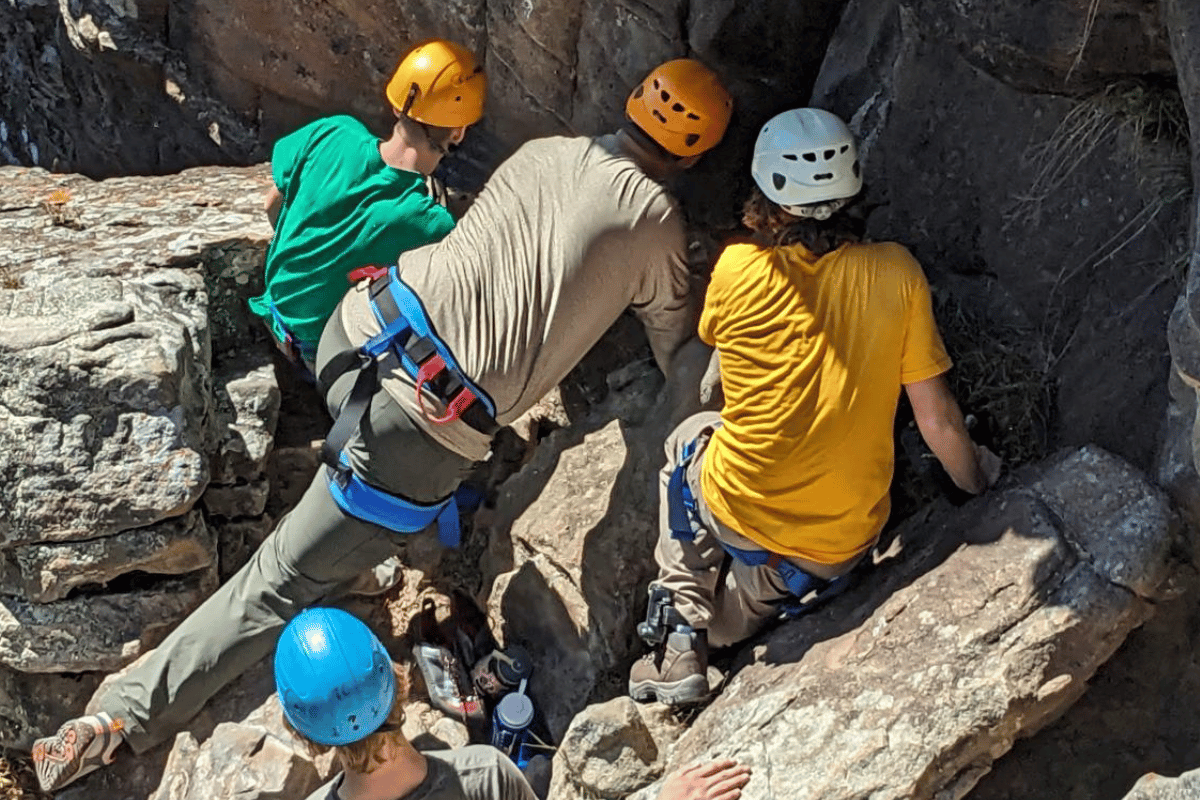Treating Suicidal Behaviors in Teen Boys
We are a state-licensed, CARF-accredited residential treatment center for teen boys eperiencing serious mental health struggles. Our team of trauma-informed mental and behavioral health experts work with boys experiencing suicidal ideation, high-risk behaviors, or previous suicide attempts to heal and grow, enabling them to achieve sustainable recovery.

Suicide Risk Treatment Programs for Teen Boys
According to the Centers for Disease Control and Prevention (CDC), as many as 1 in 3 teens experience persistent sadness and hopelessness or have reoccurring thoughts of suicide or self-harm.
Does your teen talk about death, seem withdrawn or preoccupied, or are they engaging in risky behaviors like drugs, alcohol, and reckless driving? Signs of suicidal behaviors in teens can be subtle but are very serious.
Treatment for these behaviors almost always requires an acute mental health placement to mitigate immediate risk. Then, once the teen is stabilized, treatment evolves to address underlying causes and develop healthy coping strategies.
At Teen Challenge Adventure Ranch, we provide a comprehensive, Christ-centered solution that begins with trauma-informed clinical therapy. Our licensed therapists use a variety of methods and techniques, including individual and group therapies, to provide an immersive therapeutic experience.
Our Innovative Approach can Help Your Teen
Learn to Redirect Negative Coping Mechanisms
Build or Strengthen a Relationship with Christ
Recognize Emotions and Understand their Feelings
Learn to Regulate Emotional Responses

What Suicidal Behaviors Look Like in Teen Boys
Suicidal behaviors vary by individual. There is no one-size-fits-all red flag for suicide risk. Some teens struggle with feelings of hopelessness and depression for years without ever becoming actively suicidal, while others seem to show little or no warning signs before making a suicide attempt. It’s best to take any threat of suicide risk seriously.
Common Warning Signs Include:
– Verbal warning statements like “I wish I were dead”
– Behavioral changes like a sudden disinterest in school
– Mood changes that include anxiety, depression, or social withdrawal
– Engaging in high-risk behaviors like drugs and alcohol
– Dramatic changes in sleep patterns, hygiene, or physical appearance
– Preoccupation with death or morbid content
– Expressing feelings of being trapped or feeling hopeless
Evidence-Based, Christ-Centered Residential Treatment
Common Therapies for Suicidal Behaviors Include:

Cognitive Behavioral Therapy (CBT)

Accelerated Resolution Therapy (ART)

Interpersonal Group Therapy (IPT)

Mindfulness-Based Therapies

Experiential Learning Therapy
When is Residential Treatment the Right Choice?
Residential treatment programs vary in length and scope of services. If your teen is in immediate danger, help is available through skilled mental health facilities designed to provide 72-hour evaluation placements.
But what happens next depends on the level of care that is most appropriate for your child. Teens with an active suicide risk often need intensive intervention through a long-term residential treatment facility. These programs range from 30 days to more than 365 days and offer a variety of different services depending on the program.
Is your teen actively suicidal and seeking means?
Residential treatment provides a safe environment for teens facing active suicidal thoughts, offering immediate stabilization and round-the-clock support. With tailored therapeutic interventions, these programs help uncover the root causes of their distress, equipping them with essential coping skills and resilience needed to navigate their emotional challenges.
Does your teen have multiple diagnoses or complex treatment needs?
Long-term residential programs can provide the depth and flexibility needed to effectively treat co-occurring diagnoses. If your teen is experiencing any combination of suicidal behaviors, substance abuse, or risk-seeking behaviors, a residential treatment placement can help.
Has your teen tried outpatient therapy with little or no success?
Residential programs provide a more immersive therapeutic experience, with a variety of activities that work together to support therapuetic progress. A residential placement can help even if previous outpatient or short-duration placements have failed.
Could your son benefit from a more structured environment?
Residential treatment environments provides structure and support, allowing individuals to focus on developing healthy routines and habits that support long-term success in the outside world.
Get Help that Renews the Whole Family
Explore Christ-Centered Residential Treatment for Your Teen


